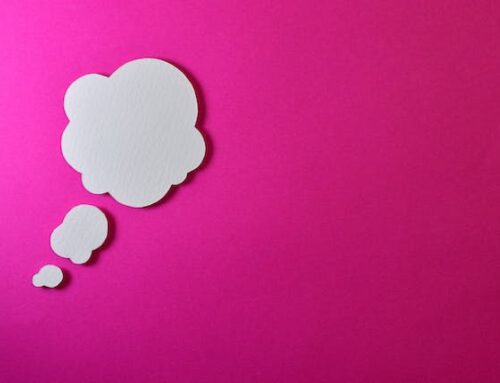SPD, PTSD, Neurodiversity and Going to the Dentist: 8 Reasons It’s Hard & 13 Ways to Make It Better
December 7, 2018
When getting work done at the dentist, it’s not so much that I’m fearful or that it’s painful (well, sometimes it is); rather, it’s a number of things that cause it to be very difficult. I have learned, though, that there are things I can do to make my visits more tolerable. Less traumatic. Making me and my teeth happy.
Going to the dentist is hard because of the:
-
People and objects being too close to my face, which causes me to feel immediate panic and the need to flee, so I cry and disconnect instead. During especially troubled times, I’ve even been known to push away the hands of the hygienists or dentists — whoops!
-
Feeling that my teeth are breaking apart with each scrape.
-
Loud, shrill noises. The ones that make me feel like I need to jump out of my body. So I do.
-
Smells: of the cleaning solutions, the sterile tools, the dust from my teeth if they’re sanded.
-
Fact that I can feel every part of the work they’ve done, and it takes me days, weeks, months to get to the point where knowing of these changes doesn’t cause me panic every day. When I wake up. When my mind is relaxed. When I want to try to enjoy life, but it’s sitting there, waiting for me. Letting me know there’s something different standing in my way.
-
Fact that, due to the state of my nerves and my nervous system, I’ve had to have several root canals — so many I’ve lost count — even multiple for the same tooth. And it’s not only the process of getting a root canal that’s difficult, but it’s trying to fight away the thoughts of what they’re doing, not only while they’re doing it, but for days and weeks after. The thoughts creep up on me. Take me by surprise. And take with them any sense of contentment I was feeling in the moment.
-
Fact that I’ve experienced trauma with my teeth. I had a front tooth knocked out when someone elbowed me while I was drinking out of a glass bottle. Then one year later, I chipped my other front tooth on a coffee cup. Experiences that caused me panic attacks for months. Sleepless nights. Mental and emotional stress. Now, whenever something goes near my front teeth, my post-traumatic stress ensues. So imagine how I feel when someone comes at my teeth with a metal stick. I fear the worst will happen again.
-
Fact that dentists in the past didn’t understand how different my needs are and placed me into a generalized category when I expressed my concerns. They’ve said things like, “No one likes going to the dentist,” and, “It shouldn’t hurt that much,” instead of realizing that, for me, going to the dentist brings out my most primitive, fight-or-flight state: One that puts me in the worst place I can be. Where I have to mentally prepare for days before my appointment. Where it takes everything I have to be there. Where I have to build in time after my appointment before I drive because I leave feeling so disoriented and overwhelmed. Where I have to have time to sob for hours. Where I have to go home and sit in the dark with my weighted blanket and sleep in order to recover from the experience. That for me, reasons I don’t like going to the dentist far surpass what most experience. But I want to keep my teeth, so I suffer through it.
In order to make the process of going to the dentist better, I:
-
Changed dentists until I found one I truly feel comfortable with. With a technician I can share my sensory issues with who seems genuinely concerned and wants to help.
-
Only go when I know I’ll have time to recover. For a cleaning, this means a few hours. So basically, I’m not one of those people who can go at 8 a.m. because my entire day will be shot. And I can’t go if I have anything of significance to do after. (For more invasive dental work, I need to schedule days to recover. Not only from the physical discomfort, but from the mental discomfort as well.)
-
Apply lavender before I go on my jaw and my wrists to relax my jaw muscles and my mind. That way, I can smell the lavender if I start to feel overwhelmed.
-
Apply lip balm on and around my lips before I go so my lips don’t crack while they’re working. Or so the tools don’t stick to my skin. A feeling that, once it happens, I cannot seem to escape.
-
Ask them not to use the high-tech cleaning drills, but the old-fashioned metal pics to clean my teeth. That way, I at least avoid the high-pitched sound.
-
Wear sunglasses or goggles to keep the water spray and other particles from shooting into my eyes.
-
Get nitrous oxide, even for a cleaning, to help calm my mind. To distract me from what they’re doing.
-
Wear the X-ray vest the entire time I’m there. Because, like a weighted blanket, it calms my nervous system. And between the sunglasses, the nitrous mask and the vest, my body stays protected, from head to torso, during the cleaning. (Because I am in fight-or-flight mode, any unintentional touch could send me into an uncontrolled state, and covering my body minimizes the chances of this happening.)
-
Get numbing gel on my gums to feel less of the poking and scraping.
-
Use a bite block, so my TMJ doesn’t cause my jaw to clamp shut on whomever is working on my teeth. It also gives me something to grind my teeth on, which is what I do when my processing is stressful.
-
See my massage therapist following a visit to the dentist, so she can remove the knots in my jaw, neck and shoulders that I obtained from the visit. And so my TMJ doesn’t worsen.
-
Go in for visits as calm as possible. Before I go, I make sure I workout, take my supplements and medication, have little-to-no caffeine, drink chamomile tea, and try to have as little going on in my day as possible.
-
Keep a checklist of these items so I know what I need to do before each time I go.










